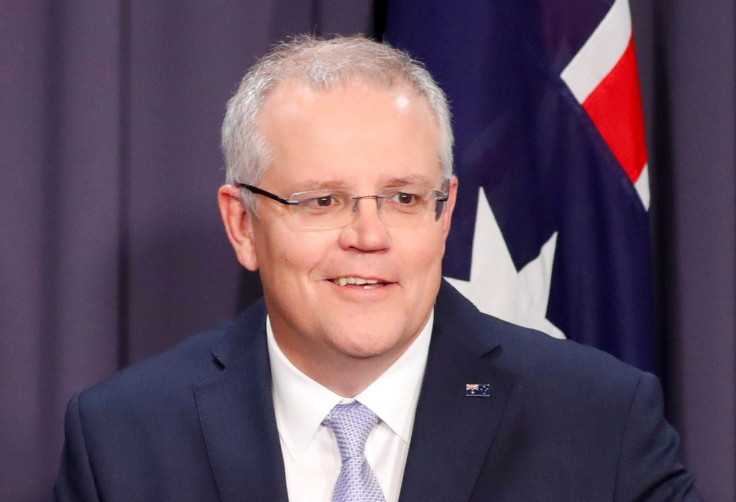Scott Morrison receives flak over ‘gender whisperers’ tweet about trans kids

Scott Morrison has been criticised for his “gender whisperers” tweet about trans students. The Australian prime minister was responding to a newspaper article about teachers being trained to identify transgender children in the classroom, which he thought was unnecessary.
An article in the Daily Telegraph notes that public and private schools had asked gender identity experts to educate teachers on identifying transgender students. Morrison responded to the publication’s tweet claiming it was a pointless move.
We do not need ‘gender whisperers’ in our schools. Let kids be kids. https://t.co/POzM26PXU5
— Scott Morrison (@ScottMorrisonMP) September 4, 2018
“We do not need ‘gender whisperers’ in our schools. Let kids be kids,” he wrote.
Dr Elizabeth Riley, who was quoted in the article, told SBS that Morrison failed to understand how they were trying to help the children.
“Let kids be kids? That’s exactly what we are doing… and a lot of that is letting of that is letting children be themselves.”
Dr Riley said that she had only worked with NSW schools after a child had identified as transgender, contrary to what the Daily Telegraph article stated that she was employed by the Department of Education. She has never been called in a school to show teachers how to spot a trans student. Her job, she said, was to talk to schools about gender identity.
Morrison’s comment has provoked discussions on social media, with some agreeing with him. Those who don’t, however, felt that the PM was out of line.
We don't need preachers in our schools either, but you seem ok with forcing THOSE values on other people's kids.
— Catherine au Perry (@CatPurry9) September 5, 2018
When you say "let kids be kids" you mean "force trans kids to pretend to be who they aren't because they make me uncomfortable"
— Katy Montgomerie (@KatyMontgomerie) September 5, 2018
If you want to let kids to be kids, take away adult indoctrination into bigotry. Take away the burden of having to be closeted about who they are. Allow them to be supported & nurtured no matter their gender. So they can be kids & be happy & free to exist as they are.
— Michelle B (@pintsizedMB) September 5, 2018
We do not need "Scott Morrison" in government. Let Australia be Australia.
— Nik _ (@NikPantis) September 5, 2018
We need to support ALL kids to let them@be kids. LGBTI kids are kids too! Stop pretending kids don’t know when they’re different- you have the power to help them be supported and empowered. You could do something about the terrible rate of trans youth suicide!
— HandbagMafia _❤️ (@handbagmafia_1) September 5, 2018
Does does anyone really think kids can be “gender whispered” into changing their gender? I have three children and this is utter bullshit. The very small proportion of community that do have huge rates of youth suicide. This is a dangerously stupid tweet. https://t.co/ZsHyB9EQJd
— Samantha Maiden (@samanthamaiden) September 5, 2018
"I'm on your side". Unless you're a transgender kid, gay, bisexual ("they make my skin curl"), women bullied by the Liberal Party, children in offshore detention, or anyone who believes in climate change. https://t.co/YN8e43CosL
— Jason Ball (@jasonballau) September 5, 2018
The NSW Department of Education said it seeks help from experts when needed, though it said it did not employ Riley.
“Students who need support for whatever reason will receive it in NSW public schools. Schools consult with the student and their parents or carers when planning for a student’s needs,” it said. “At times, parents and carers will have chosen to seek support from other professionals and/or agencies such as NSW Health to support their child. In response to a request from parents, the department will work with other agencies and support services on a case by case basis to support the specific needs of individual students, including sensitive health-related issues.”




















